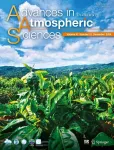(Press-News.org) “While exposure to persecution, war and displacement is associated with high rates of psychological disorders, such as PTSD and depression, remarkably the majority of refugees, despite having gone through very difficult experiences, don’t go on to develop a psychological disorder,” says Prof. Nickerson, Director of the Refugee Trauma and Recovery Program at UNSW’s School of Psychology.
Despite this, previous research has focused on trying to understand factors that predict psychopathology or psychological distress, rather than factors that predict wellbeing or resilience.
“More recently, however, there has been a movement towards a strengths-based approach in mental health, particularly in the refugee space, and we wanted to look at what research was out there,” says Prof. Nickerson.
The paper, out this week in Nature Mental Health, is the first to focus on factors contributing to better mental health in refugees.
To conduct the review, researchers searched four databases for relevant studies. They screened thousands of studies, 174 of which met the study criteria. 81% of the included papers were undertaken in refugees living in high-income countries (HICs) and 19% in lower-and-middle income countries (LMICs).
“The lack of research looking at predictors of good mental health highlighted the deficit focus of so much research into refugee mental health,” says Prof. Nickerson. She also noted that though 75% of the world’s refugees live in LMICs, most of the research took place in HICs.
“It underscores a real gap in refugee research,” says Prof. Nickerson.
What were the researchers looking for?
“Our systematic review covered studies investigating the mental health of refugees or asylum seekers, and we looked at factors that we called either protective or promotive of mental health. Protective factors are associated with reduced poor mental health outcomes, and promotive factors are associated with increased good mental health outcomes,” says Prof. Nickerson.
The researchers wanted to understand how to enhance the strengths of an individual or community to alleviate or even prevent distress.
“We were interested in everything from demographic and social factors to environmental and psychological factors,” Prof. Nickerson says.
“We wanted to be able to speak to a range of different implications and recommendations in the field of refugee mental health – from what psychologists or social workers might do with a client in a room, and also more broadly what kinds of conditions policy-makers should be creating in countries that host refuges to help people thrive and move forward after traumatic experiences.”
Study findings
The refugee experience is characterised by protracted exposure to danger and uncertainty. The review highlighted factors related to stability and predictability as having some of the strongest associations with good mental health in refugees.
“It makes a lot of sense that, if people who’ve been through very difficult experiences are going to overcome those and thrive, we need to create conditions where their basic needs for safety are met,” says Prof. Nickerson.
The study found a secure visa status, employment, income, good housing conditions and control over environmental circumstances were associated with good mental health outcomes in both HICs and/or LMICs.
Individuals vary in their capacity to cope with difficult circumstances, with resilience reflecting the extent to which an individual can recover or maintain good mental health in the context of adversity.
The review found that psychological factors such as cognitive strategies, self-efficacy and a sense of control were protective and promotive of wellbeing.
Building individual skills and capabilities to cope and thrive represents an important goal to promote good mental health in refugees.
“When we’re trying to understand how best to support people, we often look at the things that are going wrong, and that means our interventions are focused on those things. This study speaks to the importance of harnessing interventions that are associated with resilience, self-efficacy and psychological flexibility,” says Prof. Nickerson.
But experiences such as war, persecution and displacement occur at a societal level, and so approaches to promoting good mental health in their aftermath must extend beyond the individual.
“There is a consistent link between social engagement and support and good mental health outcomes among refugees, particularly for those in high-income countries,” Prof. Nickerson says.
“The ability to communicate in the host language, social support, and social engagement with both the refugees’ own community and the host community, along with religious coping strategies, were all linked with increased wellbeing.”
The way ahead
This review puts forward a clear research agenda, with at least three important pathways to progressing our understanding of refugee mental-health wellbeing, Prof. Nickerson says.
“One is to purposefully study factors associated with wellbeing and positive mental health outcomes, rather than just looking at factors that contribute to psychological distress. Refugee communities are remarkably resilient, and we have a lot to learn from people who have overcome adversity to thrive in their new country.
“Two is to fill the research gap in low-and-middle-income countries. The majority of refugees live in transit settings outside high-income countries. If we are going to provide effective supports, we need to understand factors that promote wellbeing in these contexts
“And finally it’s important to take a cross-disciplinary research approach. By bringing together researchers, psychologists, social workers and policy-makers, we can gain a more nuanced understanding of protective and promotive factors. Having refugee voices at the centre of this process is critical to help us understand priority areas for research and using these findings effectively. This will pave the way for developing policies and interventions that support refugee communities to thrive.”
This research was supported by funding from the Social Policy Group.
END
Safety and security: Study shines light on factors behind refugees’ resilience
It’s time to focus on mental health strategies that lean into refugees’ strengths, UNSW psychologists say.
2024-10-23
ELSE PRESS RELEASES FROM THIS DATE:
Climate change no “storm in a teacup” for the tea industry: Joint initiative between the UK and China to provide climate services to help
2024-10-23
Tea is a significant global commodity, with an industry worth tens of billions of dollars and growing. However, its production—both in terms of quantity and quality—is highly sensitive to climate variations, particularly in the context of long-term human-induced global warming and its associated shorter-term impacts such as extreme weather events.
To tackle this challenge, a collaborative initiative between UK and Chinese scientists and tea industry stakeholders has been launched. This project, known as “Tea-CUP” ...
AI-related maternal healthcare software improves odds of good care by 69%, research finds
2024-10-23
Women are more likely to receive good care during pregnancy where AI and other clinical software tools are used, a large review of research has found.
In a paper published in eClinicalMedicine researchers have conducted a review of over 12,000 papers and 87 articles for different AI and related software tools, investigating the impact of their use in maternity settings. A meta-analysis of 35 included studies found the odds of improved outcomes was 1.69 times higher in women cared for using CDSS, with data from over 5.2 million pregnancies in both High-Income and ...
British Sleep Society advocates for permanent Standard Time in the UK
2024-10-23
The British Sleep Society has released a position statement in the Journal of Sleep Research advocating for the abolition of the twice-yearly clock changes in the UK and the restoration of permanent Standard Time (Greenwich Mean Time). This recommendation is based on scientific evidence highlighting the adverse effects of the clock change and Daylight Saving Time (DST) on sleep and circadian health.
The British Sleep Society emphasizes that sleep is central to health and well-being and the enforced changes of clock time to DST can interfere negatively with sleep regulation. “What we often don’t realize is that DST changes our schedules, moving them ...
Can mobile phone networks and Bluetooth technology help researchers improve animal tracking?
2024-10-23
Animal tracking studies for ecology and conservation all face technological limitations such as high costs or the need for tags to remain in close proximity to detectors. In research published in Methods in Ecology and Evolution, investigators describe a solution that can overcome many current limitations by employing the massive global network of personal mobile phones as gateways for tracking animals using Bluetooth low energy beacons.
In areas with medium to high density of people, these simple, lightweight, and inexpensive beacons can provide regular updates of position with a battery life of 1–3 years. Through field testing ...
Does the availability of parental leave affect social norms on gender division of childcare?
2024-10-23
In research published in the British Journal of Social Psychology, investigators examined the relationship between countries’ parental leave policies and young adults’ perceptions of social norms for the division of childcare duties between mothers and fathers.
In the study of 19,259 university students (11,924 women) from 48 countries, the degree to which participants believed childcare is equally divided among mothers and fathers and the degree to which they believed childcare should be equally divided were both stronger when parental leave was available in their particular country.
Analyses of time since policy change suggested ...
Can reducing moose numbers help protect Canadian caribou populations from wolf predation?
2024-10-23
Woodland caribou populations in Canada are declining because of habitat changes that benefit common prey species of wolves (such as moose and deer), leading to increasing numbers of wolves that kill caribou. To protect caribou, wildlife managers have reduced wolf numbers in some caribou ranges, but this may cause moose populations to grow, resulting in a wolf rebound. New research in The Journal of Wildlife Management has found that reducing moose populations to historical levels through hunting could be helpful for caribou conservation.
The analysis included regions in British Columbia and Alberta with high moose populations where lethal wolf removals were annually conducted ...
How limiting new fast-food outlets may reduce childhood obesity
2024-10-23
Planning policies to restrict the number of new fast-food outlets leads to fewer overweight and obese children according to research led by Lancaster University.
Researchers examined the impact of policy in the North East of England where Gateshead Council prevented any existing non-fast-food commercial property from being converted into a hot fast-food takeaway.
The lead authors of the study, published in the journal Obesity, are Dr Huasheng Xiang from Lancaster University Management School and Professor of Health Inequalities Heather Brown from the Faculty of Health and Medicine at Lancaster University.
The researchers used Government collected data that ...
Sleep experts call for UK to abolish twice-yearly clock changes
2024-10-23
A team of leading sleep researchers from the British Sleep Society have called for the government to abolish the twice-yearly clock changes in the UK due to the adverse effects on sleep and circadian health.
After considering the available scientific evidence that circadian and sleep health are positively affected by the availability of natural daylight during the morning and negatively affected by the twice-yearly changes of clock time, especially when the clocks move forward in spring, the British Sleep Society recommends the abolition of the twice-yearly clock changes in the UK.
With sleep being central to health and wellbeing, the Society has issued a statement ...
Risk of cardiovascular disease linked to long-term exposure to arsenic in community water supplies
2024-10-23
Long term exposure to arsenic in water may increase cardiovascular disease and especially heart disease risk even at exposure levels below the federal regulatory limit (10µg/L) according to a new study at Columbia University Mailman School of Public Health. This is the first study to describe exposure-response relationships at concentrations below the current regulatory limit and substantiates that prolonged exposure to arsenic in water contributes to the development of ischemic heart disease.
The researchers ...
Taking the “vibrational fingerprints” of molecules got 100 times faster
2024-10-23
Researchers Takuma Nakamura, Kazuki Hashimoto, and Takuro Ideguchi of the Institute for Photon Science and Technology at the University of Tokyo have increased by a 100-fold the measurement rate of Raman spectroscopy, a common technique for measuring the “vibrational fingerprint” of molecules in order to identify them. As the measurement rate has been a major limiting factor, this improvement contributes to advancements in many fields that rely on identifying molecules and cells, such as biomedical diagnostics and material analytics. The findings were published in the journal Ultrafast ...
LAST 30 PRESS RELEASES:
Natural compound from pomegranate leaves disrupts disease-causing amyloid
A depression treatment that once took eight weeks may work just as well in one
New study calls for personalized, tiered approach to postpartum care
The hidden breath of cities: Why we need to look closer at public fountains
Rewetting peatlands could unlock more effective carbon removal using biochar
Microplastics discovered in prostate tumors
ACES marks 150 years of the Morrow Plots, our nation's oldest research field
Physicists open door to future, hyper-efficient ‘orbitronic’ devices
$80 million supports research into exceptional longevity
Why the planet doesn’t dry out together: scientists solve a global climate puzzle
Global greening: The Earth’s green wave is shifting
You don't need to be very altruistic to stop an epidemic
Signs on Stone Age objects: Precursor to written language dates back 40,000 years
MIT study reveals climatic fingerprints of wildfires and volcanic eruptions
A shift from the sandlot to the travel team for youth sports
Hair-width LEDs could replace lasers
The hidden infections that refuse to go away: how household practices can stop deadly diseases
Ochsner MD Anderson uses groundbreaking TIL therapy to treat advanced melanoma in adults
A heatshield for ‘never-wet’ surfaces: Rice engineering team repels even near-boiling water with low-cost, scalable coating
Skills from being a birder may change—and benefit—your brain
Waterloo researchers turning plastic waste into vinegar
Measuring the expansion of the universe with cosmic fireworks
How horses whinny: Whistling while singing
US newborn hepatitis B virus vaccination rates
When influencers raise a glass, young viewers want to join them
Exposure to alcohol-related social media content and desire to drink among young adults
Access to dialysis facilities in socioeconomically advantaged and disadvantaged communities
Dietary patterns and indicators of cognitive function
New study shows dry powder inhalers can improve patient outcomes and lower environmental impact
Plant hormone therapy could improve global food security
[Press-News.org] Safety and security: Study shines light on factors behind refugees’ resilienceIt’s time to focus on mental health strategies that lean into refugees’ strengths, UNSW psychologists say.


